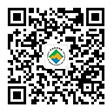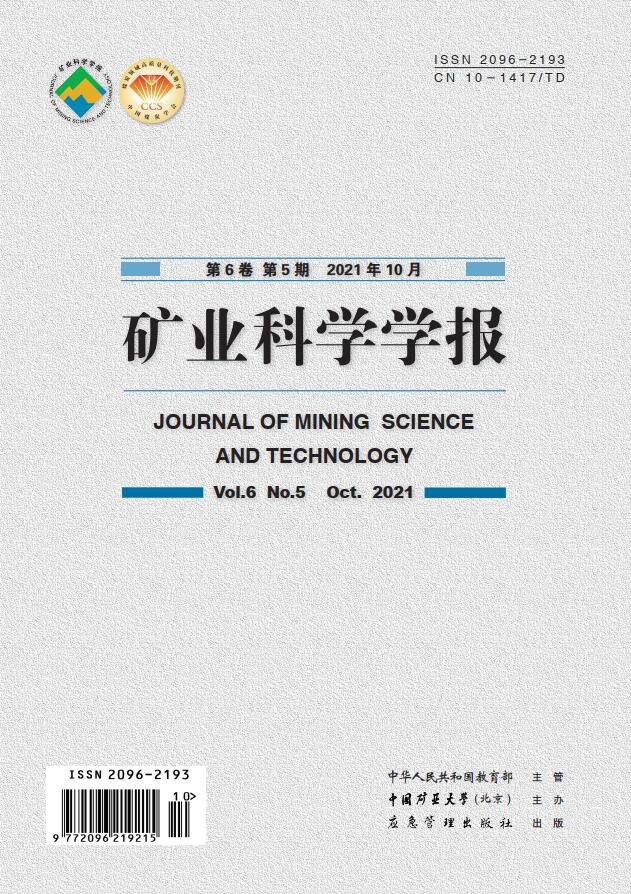Maintaining good ethical awareness and practicing moral rules are critical to every participant in academic research, essay writing, and publishing. Journal of Mining Science and Technology adheres to the concept of sticking to high standards of publishing ethics, and implements this commitment with transparent and standardized services, and provides correct advice when it is found that authors’articles have academic misconduct. Below we list several publishing ethics and guidelines that are critical to the journal for reference by contributors. For more details, please refer to the official website of the Committee on Publication Ethics (COPE) (Committee on Publication Ethics) (http://www.publicationethics.org/) and the publication of ethical standards by institutions such as the European Association of Scientific Editors (EASE).
1. The author's publishing ethics and publishing drawbacks
The author is obliged to indicate that the paper is the original research work (except for the review) and does not contain any content that is forged, deceived, or plagiarized. The paper submitted does not involve state secrets and does not involve any infringement issues related to intellectual property. There shall be no multiple submissions for the paper, and its content must not have been published in any other languages. It is guaranteed that no other publications will be submitted until the editor's notice of rejection is received.
The citations must have clearly identified the source of citations and listed them by reference. The companies and individuals who have provided scientific support and consultation for this article must have been listed in the acknowledgment. The revision comments of reviewers and editors must be respected. After publishing the submitted manuscript, the copyright exclusive license and exclusive agency of the paper will be awarded to the editorial department of Journal of Mining Science and Technology. The author must eliminate the following academic misconduct:
(1) Multiple submissions: the author is obliged to ensure the originality of the submitted papers and confirm that they have never been published before. Deliberately publishing a published paper is a serious violation of publishing ethics.
The most important principle is that the submitted papers need to be original and not submitted to other journals at the same time. If the paper has been published in a different form (including publication in a different language), or if a similar paper has been published and translated, the author is required to explain it at the time of submission.
(2) Plagiarism: Plagiarism is the most common violation of publishing ethical behavior. It means that the author has deliberately used the work of others without the consent of the original author and without citing the literature or thanking him. The form of plagiarism involves direct re-posting and rewriting other people's work, which can involve data, words, sentences, paragraphs, ideas and concepts. Any sorts of plagiarism will not be allowed in our journal.
(3) Co-author/author status: The identity of the author is to ensure that the person contributing to the study is recognized and that the person is responsible for the study. Deliberately distorting the relationship between the researcher and the research is an improper act that compromises the credibility of the research results. The author of the submission must obtain the authorization and consent of the co-author before submitting the manuscript.
(4) Originality: The author should not resubmit the published data as original materials, except that when the author explicitly informs and moderately quotes.
(5) Research fraud: Research fraud means that the data or conclusions are not obtained by experiments or research, but forged or tampered by the author. In any case, the researcher should not do this.
2. Publishing ethics and publishing malpractices of peer review experts
Scientific and accurate review of manuscripts and objective and fair evaluations shall be ensured. The content of the review is strictly confidential and the author's research results are respected. Manuscripts with interests shall be avoided.
(1) Using your own expertise to review the innovative, scientific, and practical nature of the manuscript. A fair evaluation system should be proposed on whether the research method is appropriate, whether the scientific research design is reasonable, whether the results, conclusions are accurate, and whether there is a leak or not, in order to help the editors, judge the choice of the manuscripts. Detailed revisions to the problems existing in the article should be proposed to help the author to improve the quality of the paper.
(2) The manuscripts reviewed are only evaluated academically, and no personal evaluation or personal attacks shall be made. The selection of manuscripts is not affected by the contributor's race, gender, religion, belief, status, qualifications, and authority. The arguments must be clearly stated with sufficient arguments and facts.
(3) The review comments on the manuscripts shall be filled on time and returned to the editorial department within the specified time. If it cannot be completed on time, the reasons should be stated and the manuscript should be returned.
(4) The reviewed manuscripts shall be kept strictly confidential, and shall not be circulated or discussed to others, and the data, opinions and conclusions of the manuscripts reviewed shall not be used and published. If they are to be used, the author's consent shall be obtained.
(5) The reports and arguments explicitly cited in the previous study of the paper must clearly indicate the source. Reviewers shall identify published works that are not cited by the author; and explain to the author the similarity or repeatability between the submitted papers and the published papers in accordance with their own knowledge and cognitive categories.
(6) All review comments and information must be kept confidential and not for personal use. Reviewers are not allowed to review articles with conflicts of interest arising from competition and cooperation with authors, organizations, and companies.
3. Editor’s publishing ethics and publishing malpractices
Strictly implement relevant national laws and regulations and abide by academic publishing ethics and norms. Handle all manuscripts in a timely and impartial manner, respect the author's research results, and respect the reviewers' opinions. Keep the information of authors and reviewers confidential. Avoid submissions from personal relations.
(1) Editors should be responsible for all the editorial aspects of the journal, including the continuous promotion of journal development and ensuring that the manuscripts are published on time and in good quality. Editors should abide by the relevant policies set by the journal editorial board and follow the relevant legal norms concerning defamation, infringement, and plagiarism.
(2) Maintain the authenticity of the review records, and be obliged to keep the materials for reviewing and modifying confidential. The editor-in-chief and editorial staff shall not disclose any information about the submitted paper to others except as necessary to provide the required information to the author, reviewer, and editorial board members.
(3) Selection of manuscripts must be fair, accepting or rejecting articles can only be based on the originality, importance, clarity of the paper and whether it conforms to the purpose and scope of the journal.
(4) When the editor's article has a large amount of revision, it is necessary to communicate with the author in time and obtain the author's consent.
(5) Eliminate all business needs and interests that are detrimental to academic ethics.
(6) Be obliged to investigate and communicate academic misconduct. Once an academic ethics complaint is filed or published, the editor must take effective measures. If necessary, promptly publicize corrections, clarifications, withdrawals or apologies. The editor is obliged to hold the author and reviewer accountable for misconduct;
(7) The editor shall ensure that the information submitted by the author is not used for personal research or for research by others; and also ensure that the identity of reviewers and other relevant personnel in the editorial department are protected during the blind review process.
(8) Encourage academic contends and be obliged to respond to the author's different views on the reviewers' opinions.
(9) The editor should ensure that the review of the paper is fair and reasonable. In the event of a conflict of interest or cooperation arising from competition, cooperation with the author, his company or enterprise of the article, the editor must propose to change the reviewer, and the editor or other editorial board member shall be responsible for the review of the paper.
Author’s Commitments & Copyright Transfer Agreement
1. Author guarantees that the thesis is an original work; The content does not involve infringement and disclosure; No more than one draft has been submitted and has not been publicly published at home and abroad in any form.
2. The author's signature, author's unit, content and ranking are not controversial.
3. Author voluntarily transfers all the rights of publication, distribution, dissemination, reproduction and translation (any media, any language) of the thesis to Journal of Mining Science and Technology.
4. The undersigned is authorized to sign this Agreement on behalf of the undersigned. This agreement is binding on all authors; The undersigned warrants that he/she has full power to sign this Agreement and make various commitments.
5. Other matters not covered herein shall be settled by both parties through negotiation; If the negotiation fails, it shall be handled in accordance with the relevant laws and regulations of the people's Republic of China.
6. Once it is found that the author of the paper has academic misconduct such as plagiarism, plagiarism, multi submission of one draft, falsification of data and infringement on the rights and interests of others, the editorial department will seriously deal with the main author: withdraw the paper and refuse to publish all the author's manuscripts, and notify the author's unit and other scientific and technological journals in the field.
7. This Commitment is made in duplicate, the Author keeping one and the Editorial Board keeping the other one for future reference. This Commitment shall take effect from the date of signature by the Author.













